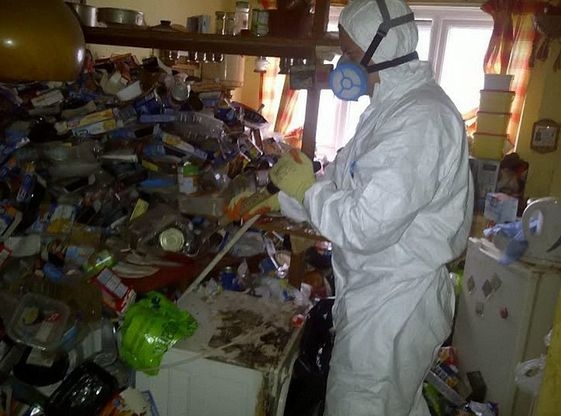What to Expect During a Hoarder Clean-Out Service

Cleaning out a hoarded home is no ordinary task. It involves more than just removing clutter, it’s an emotional, psychological, and physical process that requires sensitivity, planning, and expertise. Hoarder clean-out services are designed to handle these unique situations with care, efficiency, and discretion.
Whether you're helping a loved one or managing a property as a landlord or executor, understanding what to expect can make the process smoother and less overwhelming. Here’s a step-by-step guide to what typically happens during a professional hoarder clean-out service.
1. Initial Consultation and Assessment
The first step is usually an on-site evaluation. A team member from the clean-out service will visit the property to assess the extent of the hoarding. They’ll look at:
-
The volume and types of items hoarded
-
Safety hazards like mold, pests, or blocked exits
-
Structural damage, if any
-
The layout and access points of the home
This assessment helps them determine the scope of work, number of team members needed, and what kind of equipment or special handling may be required.
2. Customized Clean-Out Plan
After the initial assessment, the company will provide a detailed plan of action. This includes:
-
Timeline for the clean-out
-
Estimated cost
-
Necessary permits or clearances
-
Recommendations for special services (e.g., pest control, mold remediation, biohazard cleanup)
The team will also coordinate with mental health professionals or family members if needed, to ensure a respectful and supportive approach.
3. Emotional Support and Communication
Hoarding is often linked to underlying mental health conditions such as anxiety, depression, or OCD. Professional clean-out services are trained to work with compassion and patience. They understand that every item may have emotional significance to the person involved.
Expect regular communication throughout the process. Some services work closely with therapists or counselors to help the hoarder cope with the process and make decisions about what to keep, donate, or discard.
4. Sorting and Categorizing Items
Once the clean-out begins, the crew will start sorting through items. Everything is typically grouped into categories:
-
Keep: Items with personal value or practical use.
-
Donate: Usable items in good condition.
Recycle: Materials that can be environmentally processed. -
Dispose: Trash, hazardous materials, or items beyond repair.
This stage is time-consuming and sensitive, often involving guidance from the homeowner or family members. Items with personal or legal importance (documents, photos, heirlooms) are set aside and handled with care.
5. Safe and Sanitary Disposal
Due to the nature of hoarded environments, there may be health risks involved—such as rotting food, pest infestations, or biohazards (e.g., animal waste, mold). Professionals are equipped with:
-
Personal protective equipment (PPE)
-
Industrial-strength cleaners and disinfectants
-
Tools for safe removal of sharp or hazardous objects
They also follow proper disposal protocols to handle any biohazardous waste, electronics, and chemicals safely and legally.
6. Deep Cleaning and Sanitization
After the clutter is removed, the space is often in need of deep cleaning. This includes:
-
Sweeping, mopping, and vacuuming
Disinfecting surfaces
Odor removal -
Mold remediation (if necessary)
-
Pest control treatment
Some companies offer full restoration services, helping return the home to a livable and healthy condition.
7. Optional Repairs and Restoration
In severe cases of hoarding, the home may require structural repairs due to prolonged neglect. This can include:
-
Replacing damaged drywall or flooring
Fixing plumbing or electrical systems -
Painting and basic home repairs
While not every clean-out company provides these services in-house, many partner with licensed contractors to offer a complete solution.
8. Post-Clean-Out Support
Some hoarder clean-out services provide aftercare options to prevent relapse. These may include:
-
Follow-up visits
-
Referrals to therapy or support groups
-
Ongoing maintenance cleaning
The goal is not only to clean the space but also to support long-term recovery and create a sustainable living environment.
Conclusion
A hoarder clean-out service isn’t just about clearing out junk, it’s a compassionate and structured approach to reclaiming a safe, livable space. These professionals bring order to chaos, offering not only cleaning expertise but also emotional support and discretion.
If you or someone you know is facing a hoarding situation, remember: help is available. A professional clean-out service can turn an overwhelming problem into a manageable solution, one respectful step at a time.
- Art
- Causes
- Crafts
- Dance
- Drinks
- Film
- Fitness
- Food
- Παιχνίδια
- Gardening
- Health
- Κεντρική Σελίδα
- Literature
- Music
- Networking
- άλλο
- Party
- Religion
- Shopping
- Sports
- Theater
- Wellness


